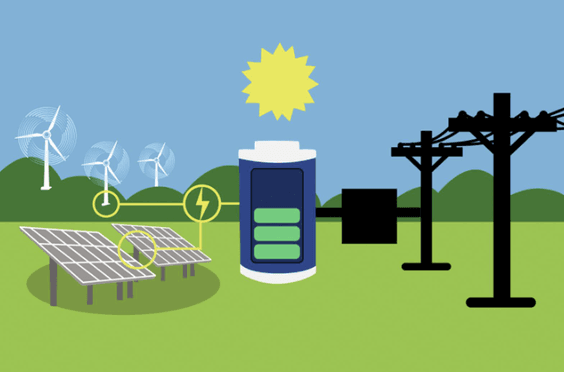According to data collected by the Spanish Photovoltaic Union (UNEF), the majority association of solar energy in Spain that already has more than 800 companies, in 2023 495 MWh of behind-the-meter storage were installed in Spain, of which, around Three quarters correspond to residential facilities.
UNEF has carried out study work with its associated companies to obtain, for the second consecutive year, the first record in Spain on behind-the-meter storage with the aim of sizing and proposing a roadmap to address the needs of the energy sector. solar, in particular, and renewable energies, in general in this area.
“At UNEF we consider it essential to continue working hand in hand with companies and public institutions to draw up an appropriate strategy that will allow us the definitive boost that behind-the-meter storage needs. It is a key piece for the integration of renewables into the grid and decarbonization, so this drop shows the need to continue working on the creation of financing schemes that make this type of installations more competitive, such as the exemption from VAT or tax deductions,” explained José Donoso, general director of UNEF.
“Storage systems allow us to make more efficient use of surpluses, that is, energy not self-consumed at the time it is generated, in order to be able to consume it at a later time. In the coming years, batteries are going to have the same importance as the solar panels themselves,” explains Donoso.
Furthermore, the general director of the majority sector association for solar energy in Spain, analyzes the data collected by UNEF: “The drop in electricity prices that we are seeing in recent months has reduced the profitability of this type of installations. Also the end of the Next Generation aid that stimulated this type of installations has been a trigger reason for the implementation of storage in Spain to have slowed down, we have noticed this in self-consumption in 2023 and now in the storage data, since the “Batteries are usually installed at the same time as the self-consumption installation and residential is the main battery segment.”
At UNEF we consider it essential to continue working hand in hand with companies and public institutions to develop an appropriate strategy that will allow us the definitive boost that behind-the-meter storage needs. It is a key piece for the integration of renewables into the grid and decarbonization, so this drop shows the need to continue working on regulatory changes that make this type of installations more competitive.
“We consider it essential to modify the toll and charge scheme, to increase the variable part of the bill and the price of the hours in which the networks are most congested, reduce or eliminate VAT for the components of photovoltaic installations (panels, inverters and batteries) and implement aid through tax relief,” explains Donoso.
II International Summit on Storage & Green Hydrogen for Solar Energy
Although, currently, Spain has already achieved the storage objectives set for 2030, UNEF is developing a priority line of work in Storage & Green Hydrogen in 2024. In this context, UNEF celebrates the II International Summit on Storage and Hydrogen on May 22 and 23 in Madrid, which will feature the greatest international experts in these matters, who will share their vision and experiences on the development and future of storage and hydrogen in our country.
During the conference, the current regulatory framework for storage and hydrogen, the existing technical challenges, the financing opportunities for these projects and the growth prospects, as well as the decarbonization possibilities of the electricity and other sectors, will be addressed.


